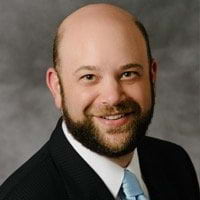Title Issues Raised By Marital Status
Why do Title Deeds in Florida recite the marital status of the grantor, or contain a statement that the property does not constitute the homestead of the Grantor?
Article X, Section 4 of the Florida Constitution provides that “The owner of homestead real estate, joined by the spouse if married, may alienate the homestead by mortgage, sale or gift and, if married, may by deed transfer the title to an estate by the entirety with the spouse.”
This means that homestead rights to a FL property flow through the owner of the property, rather than the spouse. Therefore:
-
If a single person owns the house, the deed should recite that the grantor is a single person, or if the owner does not live in the house that the property is not the homestead of the grantor.
-
If a married person owns the house and the spouse is not on the title to the house, then the deed should be signed by the owner, joined by the spouse. Or, if the owner does not live in the house then the deed should recite that the property is not the homestead of the grantor.
-
If a married person owns the house with the spouse on title, then the deed should be signed by both husband and wife, and recite that they are husband and wife.
One myth is that if the parties are separated and the wife has signed a quit-claim deed giving title to the husband, that the wife does not have to sign the deed. This is false. If the wife conveys her interest to her estranged husband and they are not divorced, the wife must still sign a deed conveying the property, unless the husband and wife both do not reside at the property in which case the husband can include on the conveyance document that the property does not constitute his homestead (see the analysis above).
For more information on title and ownership of property, please subscribe to the Yesner Law Podcast, on iTunes and Stitcher. If you prefer, please contact us to schedule a free initial consultation to discuss your options at 727-261-0224 or email me directly at shawn@yesnerlaw.com.
Shawn M. Yesner, Esq., is the founder of Yesner Law, P.L., a Tampa-based boutique real estate and consumer law firm that helps clients eliminate debt by providing options, so they can live the lifestyle of their dreams. We assist clients with asset protection, the sale and purchase of real property, Chapter 7 liquidation, Chapter 13 reorganization, bankruptcy, foreclosure defense, debt settlement, landlord/tenant issues, short sales, and loan modifications in Tampa, Westchase, Odessa, Oldsmar, Palm Harbor, Clearwater, Pinellas Park, Largo, St. Petersburg, and throughout the greater Tampa Bay area.




